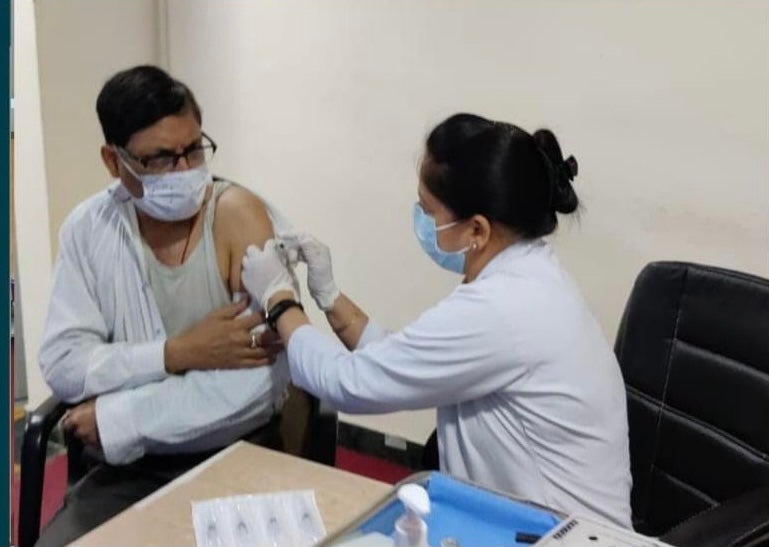Addressing Vaccine Shortage: Flexible Trade Rules for Compulsory Licences
Amitendu Palit, Mekhla Jha
29 April 2021Summary
Obtaining enough vaccines at affordable rates is a huge challenge for India and South Asia in fighting the COVID-19 pandemic. More flexible global trade rules enabling quick issue of compulsory licences for local production of patented vaccines can be of significant help.
Getting vaccines at affordable rates is one of the foremost challenges facing the world in its fight against the COVID-19 pandemic. The concern is higher for poor countries, including in South Asia, which are critically dependent on other countries for vaccines.
India, the largest country in the region, has strong local vaccine production capacities. However, it is still struggling to cope with the rising domestic demand for vaccines following the recent surge in infections. The remaining countries in the region are partly dependent on the supplies from India and disbursements by the Global Alliance of Vaccines (GAVI). The GAVI has so far supplied vaccines to more than 100 countries. However, South Asia needs to urgently source for more vaccines.
The United States (US), China and India are making vaccines locally. Till now, they are ahead of the rest of the world in administering doses to their local populations. However, with other countries also depending on supplies from their vaccine producers, the issue of enlarging global supplies has become critical.
Larger supply of vaccines must be accompanied by affordable access. Most countries do not produce vaccines locally. Many of these, however, particularly the high-income Organisation for Economic Co-operation and Development (OECD) nations, have entered into advance purchase agreements (APAs) with global pharmaceutical firms manufacturing them. That access to vaccines is being significantly determined by the abilities of countries to afford them is evident from the fact that high-income OECD countries such as Israel, the United Kingdom (UK) and Chile have fully vaccinated sizeable sections of their resident populations within three-four months of their availability. APAs are not feasible for most middle and low-income countries. For instance, vaccines from Pfizer, Moderna and Johnson & Johnson are expensive for most countries. Furthermore, Pfizer and Moderna vaccines need to be preserved at temperatures well below freezing point requiring advanced cold storage facilities which as available only in a few countries.
The AstraZeneca vaccine being manufactured by the Serum Institute of India has found favour with several countries due to its greater affordability and easier storage requirements. However, controversies surrounding its after-effects have led to some hesitancy among user countries. Countries clearly need more vaccine options at affordable prices.
Within South Asia, India, despite being a non-OECD country, has been able to vaccinate large numbers. However, as a proportion of its total population, it has fully vaccinated only 1.3 per cent of its people. Bangladesh has fully vaccinated about one per cent of its population. Comparable data on the other South Asian countries is not yet available.
India has allowed the import of all vaccines approved by the World Health Organization and regulators in the US, UK and Europe. However, this might not be enough to meet the demand. Furthermore, importing vaccines would be costly. Vaccine supplies from elsewhere might soon start getting affected by export restrictions, such as those by the European Union. These restrictions would force contracted vaccine manufacturers to prioritise supplies between countries.
The current situation requires the efficient use of compulsory licensing provisions under the trade-related aspects of intellectual property rights (TRIP) provisions of the World Trade Organization (WTO).
Compulsory licences issued by various countries enable the local production of patented items under specific circumstances. Public health concerns, particularly the conditions of COVID-19, qualify for these. Compulsory licences are issued by governments after compensating patent holders for their intellectual property rights. Governments need to actively engage with global vaccine producers for moving on compulsory licences for local production. In this respect, it is important to ensure that patent holders of vaccines do not exploit the occasion to seek high compensations from governments. The current TRIPS provisions entail extensive consultations between patent holders and governments in issuing compulsory licences. These consultations need to be brisk under current circumstances. This is precisely what India and South Africa have demanded at the WTO by asking for temporary waiver of TRIPS provisions in the global battle against COVID-19.
From a South Asian perspective, compulsory licences, enabling greater local production of patented vaccines, can help to address vaccine shortages. The WTO’s decision on waiving TRIPS provisions will also enable local producers and users of compulsory licences of patented vaccines to export to countries lacking local capacities.
. . . . .
Dr Amitendu Palit is a Senior Research Fellow and Research Lead (Trade and Economic Policy) at the Institute of South Asian Studies (ISAS), an autonomous research institute at the National University of Singapore (NUS). He can be contacted at isasap@nus.edu.sg. Ms Mekhla Jha is a student research assistant at ISAS. She can be contacted at Mekhla.jha@u.NUS.edu. The authors bear full responsibility for the facts cited and opinions expressed in this paper.
Photo credit: Facebook/Ministry of Health and Family Welfare
-
 More From :
More From :
-
 Tags :
Tags :
-
 Download PDF
Download PDF



